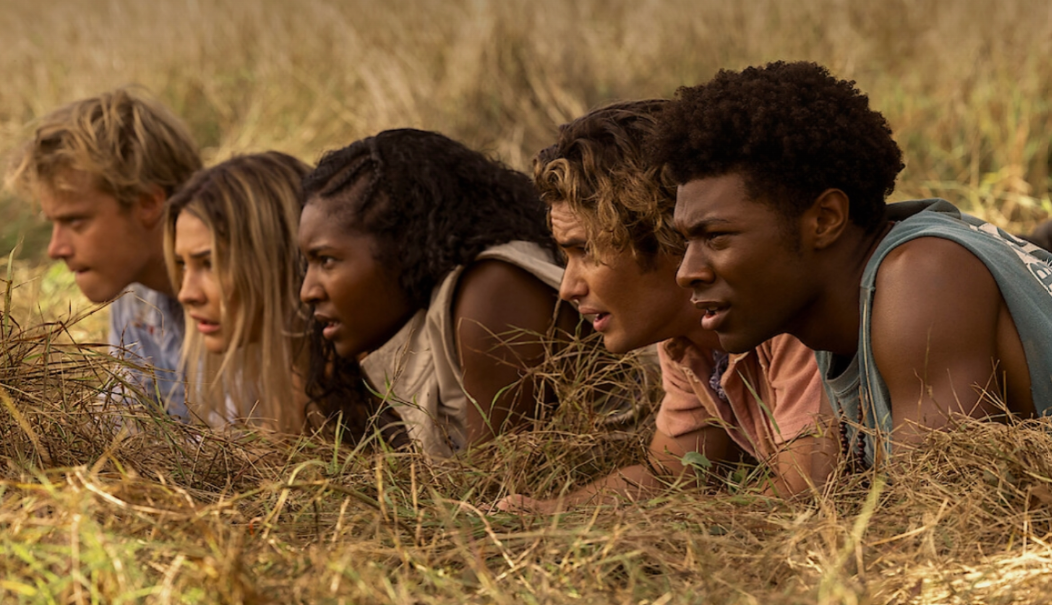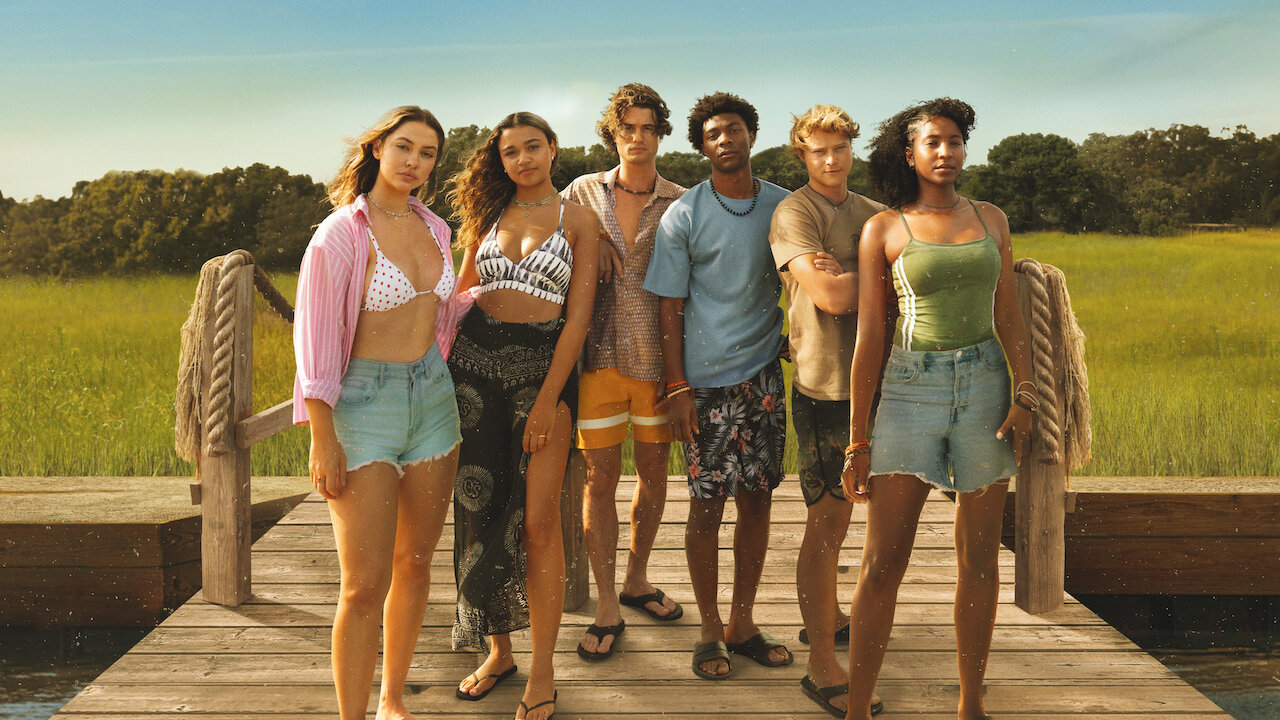By Evi Chrysoheri,
Prompted by the recent release of the fourth season of Outer Banks, one of Netflix’s most popular series that evokes nostalgic memories of hot summer days with friends, we could delve into the social issues it raises. Outer Banks is an American series blending action, adventure, mystery and teen drama. Set in North Carolina, the show centres around a stark class divide between the local working class and the affluent seasonal residents, known as the ‘Pogues’ and the ‘Kooks’ respectively. The storyline follows the main character, John B, a Pogue whose father has gone missing; this leads John B and his friends on a treasure hunt that turns out to be connected to his father’s disappearance.
From the outset, we witness the disparity in living standards between the two social groups. The Kooks reside in affluent neighbourhoods with large vacation homes and their own luxury sailboats. In contrast, the area inhabited by the so-called Pogues, known as ‘the Cut’, is a poorer, often untidy, and rundown neighbourhood. Additionally, the police are consistently suspicious, biased and quick to accuse the Pogues of any potential misconduct or crimes. Through the series, we also see police corruption; for example, in a murder case committed by a Kook, Rafe Cameron- Sarah Cameron’s brother and John B’s girlfriend- it is John B who ends up accused of the murder of the police officer. Furthermore, John B’s group of friends, which includes JJ, Cleo and Pope Heyward, as well as Sarah Cameron and Kiara Carrera -whose families belong to the wealthy elite- defy stereotypes by joining him on his adventures. Despite this, both Sarah and Kiara face criticism and backlash from their families and peers, who view the Pogues as inferior and disapprove of their association with them. Specifically, Sarah’s choice to associate with the Pogues led to her estrangement from her family, with even viewing her as an adversary and even having violent behaviour towards her.

One more difference between those two social classes is the access to resources and opportunities. The Kooks enjoy privileges such as access to quality education, stable financial support and influential connections. On the other hand, the Pogues struggle to make ends meet, often working low-paying jobs to support themselves or their families. In particular, the dangerous treasure hunts in which our protagonists are constantly involved not only satisfy their thirst for uncovering hidden mysteries, but also provide rewards that are far more beneficial to them. These gains hold the potential to improve their livelihoods and help them fulfil their dreams. In the new season, the group of friends decides to invest the treasure money by purchasing a piece of land and starting their own business. We immediately perceive the difference this creates for the Pogues as such a venture represents a life-changing opportunity for them. For the Kooks, however it would merely be an additional gain to their already substantial wealth.
Another problem that presents, is the stereotypes and prejudices which produce tension, racism and violent incidents. Kooks look down on Pogues, considering them as unambitious, reckless or criminal. The Pogues perceive the Kooks as entitled selfish and disconnected from real-life struggles. Also, the romantic relationships across classes, relationships like that of Sarah Cameron (a Kook) and John B (a Pogue) challenge class boundaries but face backlash from their respective communities. Lastly, there is difference in power dynamics in conflict. When conflicts arise, the Kooks often rely on their financial power and influence to intimidate or overpower the Pogues. The Pogues rely on their resourcefulness, solidarity and grit to stand their ground. These elements provide a stark depiction of the entrenched class disparities and tensions within the show’s setting.
Ultimately, Outer Banks mirrors the inequalities of modern society, showcasing how wealth and privilege often dictate opportunities and justice. At its core, the series highlights the enduring struggle of those seeking to overcome systemic barriers, reminding us of the resilience needed to bridge the divides that still persist today.
Reference
- Outer Banks. IMDb. Available here




